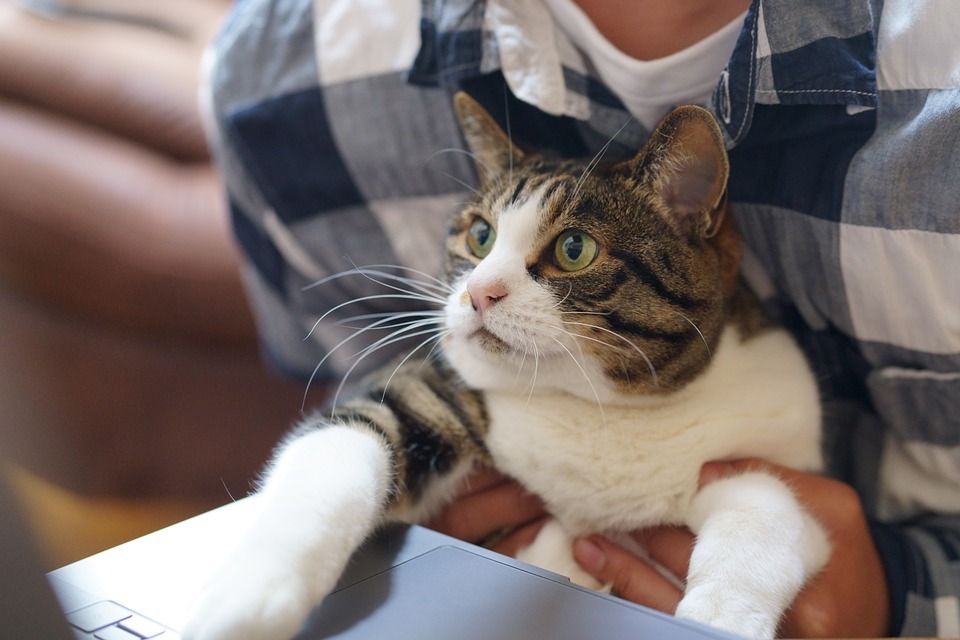Understanding Cat Urinary Stones and Crystals: Causes, Symptoms, and Treatment Options
Introduction
Cats are susceptible to various health issues, and one common problem they may experience is urinary stones and crystals. These can cause discomfort and potentially lead to serious complications if left untreated. In this article, we will explore the causes, symptoms, and treatment options for cat urinary stones and crystals.
What are Cat Urinary Stones and Crystals?
Cat urinary stones, also known as uroliths, are hard formations that develop within the urinary tract. These stones are composed of minerals that can accumulate and form crystalline structures. When these crystals become larger and more solid, they can cause blockages and urinary tract issues.
Causes of Cat Urinary Stones and Crystals
1. Diet: Feeding your cat a diet that lacks proper nutrition can contribute to the formation of urinary stones and crystals. Diets high in magnesium, phosphorus, and certain types of protein can increase the risk.
2. Dehydration: Insufficient water intake can lead to concentrated urine, making it easier for crystals to form. Encouraging your cat to drink more water is crucial in preventing urinary issues.
3. Urinary Tract Infections: Bacterial infections in the urinary tract can change the pH levels, promoting crystal formation. Treating infections promptly can help prevent the development of stones.
4. Breed Predisposition: Certain cat breeds, such as Persians and Siamese, are more prone to urinary stones and crystals. Genetics play a role in their susceptibility to this condition.
Symptoms of Cat Urinary Stones and Crystals
1. Frequent urination: If your cat starts urinating more often than usual, it may be a sign of urinary stones or crystals.
2. Straining to urinate: Difficulty or pain during urination can indicate the presence of stones or crystals obstructing the urinary tract.
3. Blood in the urine: Visible blood in the urine can be a symptom of urinary stones or crystals irritating the bladder walls.
4. Litter box aversion: Cats with urinary issues may associate the litter box with discomfort and start avoiding it.
5. Excessive grooming of the genital area: Cats may excessively lick their genital area due to irritation caused by stones or crystals.
Treatment Options for Cat Urinary Stones and Crystals
1. Dietary changes: A veterinarian may recommend a specialized diet to dissolve the stones and prevent their recurrence. These diets are formulated to create an optimal pH level and reduce the minerals responsible for stone formation.
2. Increased water intake: Encouraging your cat to drink more water is crucial for diluting the urine and preventing crystal formation. Providing fresh water sources and using water fountains can be helpful.
3. Medications: In some cases, medications to alleviate pain and inflammation may be prescribed. Antibiotics may also be necessary if a urinary tract infection is present.
4. Surgical intervention: Surgical removal of larger stones or crystals may be necessary. This procedure is typically performed under anesthesia by a veterinarian.
FAQs (Frequently Asked Questions)
1. Can urinary stones and crystals be prevented in cats?
– Yes, by feeding a balanced diet, ensuring adequate water intake, and addressing any urinary tract infections promptly, you can reduce the risk.
2. Are male cats more prone to urinary stones and crystals than females?
– Yes, male cats have a narrower urethra, making them more susceptible to blockages caused by stones or crystals.
3. How can I encourage my cat to drink more water?
– Providing multiple sources of fresh water, using water fountains, and adding wet food to their diet can help increase water consumption.
4. Can stress contribute to the formation of urinary stones and crystals?
– Yes, stress can alter a cat’s urinary habits and potentially lead to the development of stones or crystals. Maintaining a calm and stress-free environment for your cat is important.
5. How long does it take for dietary changes to dissolve urinary stones?
– It can take several weeks to several months for dietary changes to dissolve urinary stones. Regular monitoring and follow-up with your veterinarian are crucial.
Remember, early detection and prompt treatment are essential in managing cat urinary stones and crystals. If you suspect your cat may be experiencing urinary issues, consult with your veterinarian for an accurate diagnosis and appropriate treatment plan.








